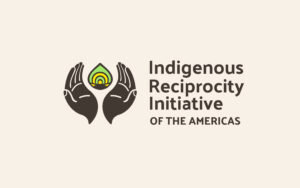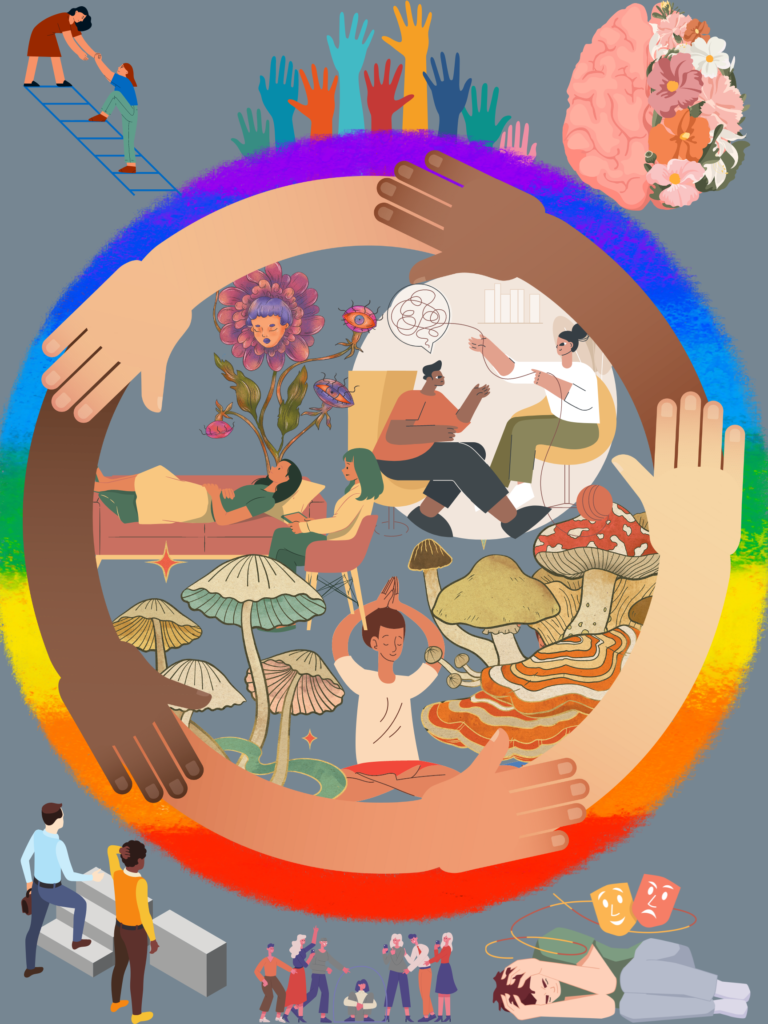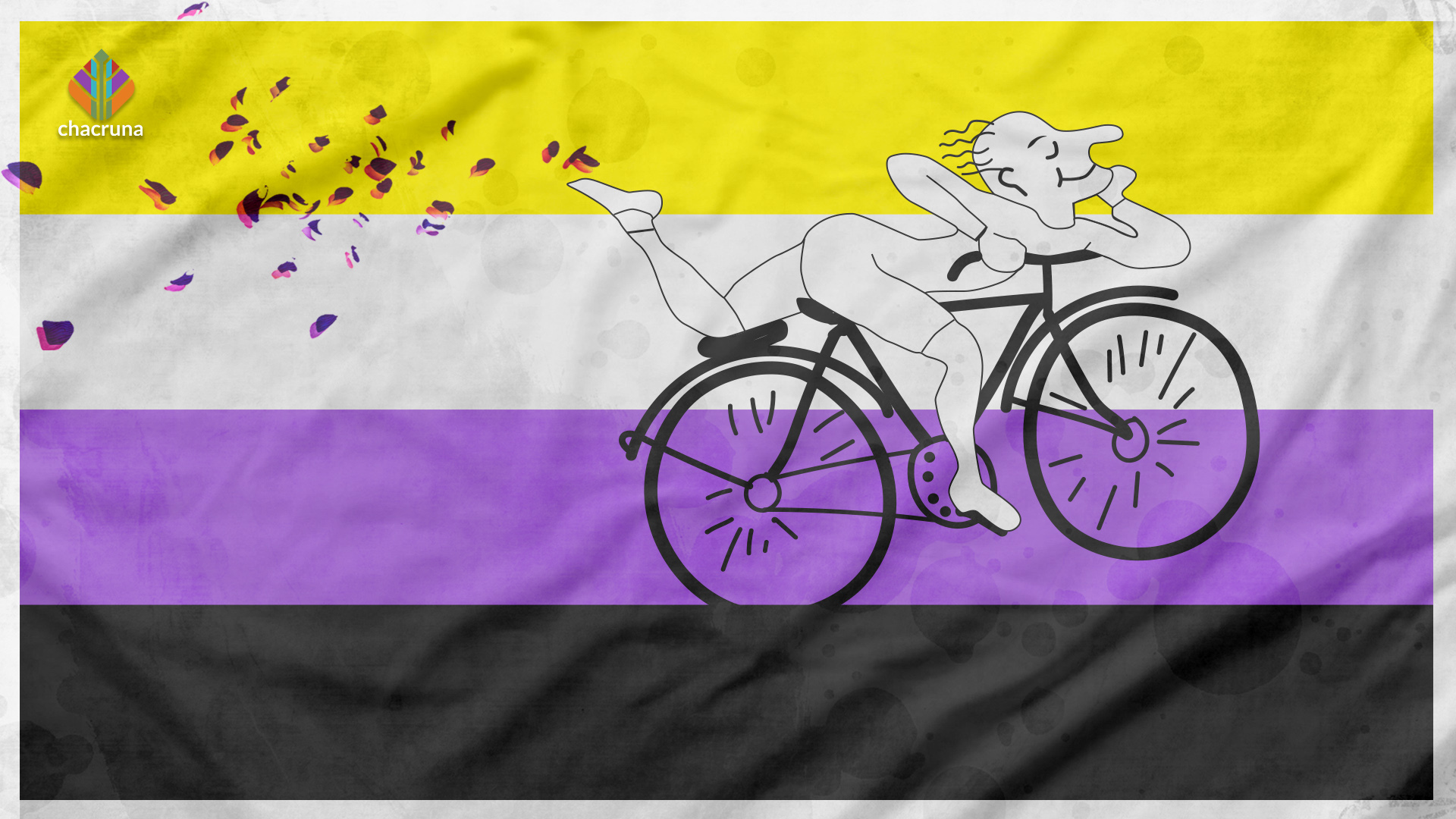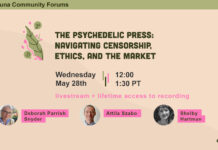Time and time again, the very basics of non-binary inclusion in healthcare are published, usually in list form. These lists include items about using respectful language (learning to use they/them and neopronouns fluidly), auditing forms for binarist language (check M, F, or Other), and changing the norm of psychedelic therapy that has traditionally relied on the binary of men and women, the sacred masculine and feminine. These are all necessary changes that some individuals within the psychedelic industry are working to achieve. It will likely still take another decade or more for these interventions to be implemented consistently, and existing inclusivity initiatives need to be expanded to ensure full inclusion and access for non-binary people.
Everywhere oppression is found is also an opportunity for personal and systemic transformation, and we genderqueers have so much more to offer than the imposition of a form audit and pronoun policing.
Everywhere oppression is found is also an opportunity for personal and systemic transformation, and we genderqueers have so much more to offer than the imposition of a form audit and pronoun policing. We have a whole new, truer way of imagining who we all are in the world and how we relate to each other. People in the psychedelic industry are uniquely positioned to be able to integrate our gift because it is one that resonates deeply with the learnings of a psychedelic trip. Our gift is a massive perspective shift, that enables everyone—including cisgender people—to break free of our gender-based social conditioning and the limitations of binary ways of thinking.
The Problem
An unofficial metric for the inclusion of non-binary people is the number of times a non-binary person is misgendered while interacting with individuals as they move through a given system. When a system is based on a binary view of gender, it seems to be perceived by most of the people within the system as unchangeable. Therefore, inclusion of non-binary people is regularly reduced to an in-the-moment linguistic compensation for a fundamentally exclusive system. It’s a softening of the blow of underlying binarism, at best, and an ongoing burden of correction or of suffering-through for the non-binary person.
The discourse around non-binary people in psychedelic research is not exactly abundant. With the exception of a few articles that discuss or are written by transgender people, a large number still use biological essentialist and binary language in discussion of gender—referencing the “divine feminine/masculine,” for example, or reference to the dominant two genders without any acknowledgement of the existence of other genders (this includes language like “both genders,” “either gender,” “opposite gender,” “he/she” instead of “they”, etc.). In an attempt to acknowledge trans and non-binary experiences without making the space they would require for full and nuanced representation, they are often conflated with the experiences of sexual minorities, under the word “queer,” or the initialism “LGBTQ” (and its variants). While some of this can be attributed to the way research has been structured until now, as well as culture-specific spiritual language, it’s highly likely that the psychedelic industry is still largely oblivious to the ways it can, and should, be transformed by non-binary identities.

Discover the Indigenous Reciprocity Initiative of the Americas
Reducing Harm Through Inclusion
Racial inclusion efforts have made some important inroads in the field of psychedelic-assisted psychotherapy thanks to the groundbreaking work of Dr. Monnica Williams, Dr. NiCole Buchanan, and others, which directly benefits other under-served and under-represented groups, including non-binary people. Important progress has also been made in 2SLGBTQIA+ inclusion by therapists Marca Cassity and Dee Dee Goldpaugh (among others), through the Queering Psychedelics conference, and Dr. Alex Belser’s “10 Calls to Action,” which inspired this paper. There are numerous resources online that outline the basics of how to include non-binary people in various contexts. Even so, the psychedelic industry has not yet achieved inclusion of non-binary people. Though full inclusion will grow naturally if the industry is able to eradicate its reliance on binaries, harm- reduction-style inclusion interventions must take place prior to full emancipation.
Ideation surrounding non-binary inclusion in the psychedelic industry has focussed largely on the non-binary person as patient. Non-binary people are probably more likely to experience adverse health outcomes than transgender men and women and could greatly benefit from psychedelic-assisted therapy. However, the over-sized emphasis on the non-binary patient echoes the pathologization of our gender identities up until 2019 by the WHO. Psychedelics were even used to “treat” homosexuality in harmful conversion therapy in the 1960’s.
Inclusion efforts can be rooted in an intention to help non-binary people heal, but they should equally base themselves on the valuing of our leadership, unique perspectives, and life experiences as an indispensable contribution to the psychedelic industry.
Inclusion efforts can be rooted in an intention to help non-binary people heal, but they should equally base themselves on the valuing of our leadership, unique perspectives, and life experiences as an indispensable contribution to the psychedelic industry. The psychedelic industry should focus on the inclusion of non-binary academics, increasing the number of non-binary therapists, transitioning programs that support women in leadership to include all marginalized genders, and preventing burnout of non-binary academics and clinicians.
Imagining An Intersectional Psychedelic Utopia
I already mentioned the important work in racial justice in the psychedelic industry that is contributing to non-binary inclusion. There is, however, a dearth of writing and discussion about neurodiversity, disability, size inclusivity, and classism in psychedelics. Transgender people are more likely than cisgender people to be neurodiverse, highly likely to experience fatphobia when seeking gender-affirming care, more likely to experience poverty, and experience barriers to accessing social assistance services and shelters. These struggles increase exponentially according to the number of intersecting identities the trans person has, like being Black and disabled in addition to being non-binary.
All psychedelic therapies, ceremonies, and even recreational spaces would ideally be accessible to non-binary people, with all our intersecting identities and experiences. Ideally, everywhere we find psychedelic medicines, we would also find wide chairs without arms to accommodate fat people and people of size, quiet, soft sensory spaces to accommodate people with sensory sensitivities, free naloxone kits with someone trained in how to administer them, pay what you can options for those who are less financially resourced, in addition to gender-neutral, wheelchair-accessible washrooms equipped with toileting facilities. Ideally, every online class and webinar would distribute slides in advance, have live captioning in addition to sign language interpretation, and feature a diverse range of guest lecturers and panelists. Every event, online or off, would have active listeners available and offer content warnings in advance of potentially triggering content. This is the accessibility dream. Can the psychedelic industry help bring this utopic vision to life?
Is the academy ready to both accept and include a Black, disabled, non-binary professor as a valued equal? How can psychedelic-assisted therapy be fully accessible for a disabled non-binary therapist of size with high support needs? Flipping the script and imagining a traditionally marginalized and historically pathologized person in a position of leadership can help us envision the exciting structures that the non-binary imagination inspires.

And For Our Next Trick: Changing Your Mind
Although it is clear we have far to go to transform the psychedelic industry into a truly affirming space for non-binary people, an even deeper transformation can take place if the individuals within the industry—whether academic, therapist, patient, or independent psychonaut—allow the non-binary concept of gender to shift their perspectives. If cisgender allies aim to respect non-binary genders without integrating a non-binary concept of gender into their own worldview, they are missing out on what I would call a revelatory, and even psychedelic, gender experience. Since a system is made of individual people agreeing to perpetuate it, a widespread change in the perspectives of those individuals can change a system in a noticeable way.
Psychedelic experiences aren’t the only catalysts for major perspective shifts. Meditation practise has been proven to lead to similar shifts. Extraordinary life events can completely change our outlook as well, like the death of a loved one, or being immersed in a different culture. It stands to reason, then, that the introduction of new information about the nature of our reality could be a mechanism for a similar shift, if we are open to it, and adequately prepared to receive it. Opening ourselves to the idea that gender is far more expansive than we had imagined, can be a door to a massive shift in our perceptions of ourselves, other people, and the social limitations and even oppression that is upheld by the lie of the binary concept of gender.
The most common response to the non-binary concept of gender, by far, is one perpetuated by many well-meaning people. This approach is to create a new binary, by imagining gender as two completely different systems: one binary system (which allows for preservation the existing gender hierarchy by only including “binary genders” of man or woman), and a completely different system of “non-binary” genders, which would include agender, Two-Spirit and other Indigenous gender identities, genderqueer, gender fluid, or any other gender that is not male or female. You might recognize this approach, and even have subscribed to it yourself.
This is still, ultimately, a way to avoid (dissociate from) the hard work of re-calibrating our entire concept of gender in our own body-mind, and in our social systems. Because bi equals two, a binary system only remains binary if there are only two components in the entire system. The instant even one additional component is introduced, the system can no longer be called binary. Most people can probably understand this on a conceptual level, but when it comes to gender, our lifelong conditioning stubbornly blocks us from integrating the practical implication of this logic: every gender is non-binary, because the system of gender is not a binary. “Man” and “woman” are just two genders among many. Emancipation from the gender binary isn’t about eradicating gender, or the gender identities of men and women. It is about somatically integrating the fact that gender is not the binary system we were conditioned to think it was.
The lie of the gender binary is among the most seductive and stubborn misconceptions of Western culture, and even some non-Western ones. Through any examined attempt to understand and include more genderqueer, Two-Spirit, agender, gender fluid, and other non-binary people within any system, a seed of revolution is planted.
Non-Binary Gender is a Revolution
The lie of the gender binary is among the most seductive and stubborn misconceptions of Western culture, and even some non-Western ones. Through any examined attempt to understand and include more genderqueer, Two-Spirit, agender, gender fluid, and other non-binary people within any system, a seed of revolution is planted. This seed can grow into a tree of emancipation from the gender binary, and even from other false binaries in our lives and systems: humans and the natural world, sick and healthy, us and them. Moving from non-binary inclusion into the integration of the non-binary imagination would be a revolution for the psychedelic industry, and everyone within it. Are you ready for the shift?
Take a minute to browse our stock:
Did you enjoy reading this article?
Please support Chacruna's work by donating to us. We are an independent organization and we offer free education and advocacy for psychedelic plant medicines. We are a team of dedicated volunteers!
Can you help Chacruna advance cultural understanding around these substances?














